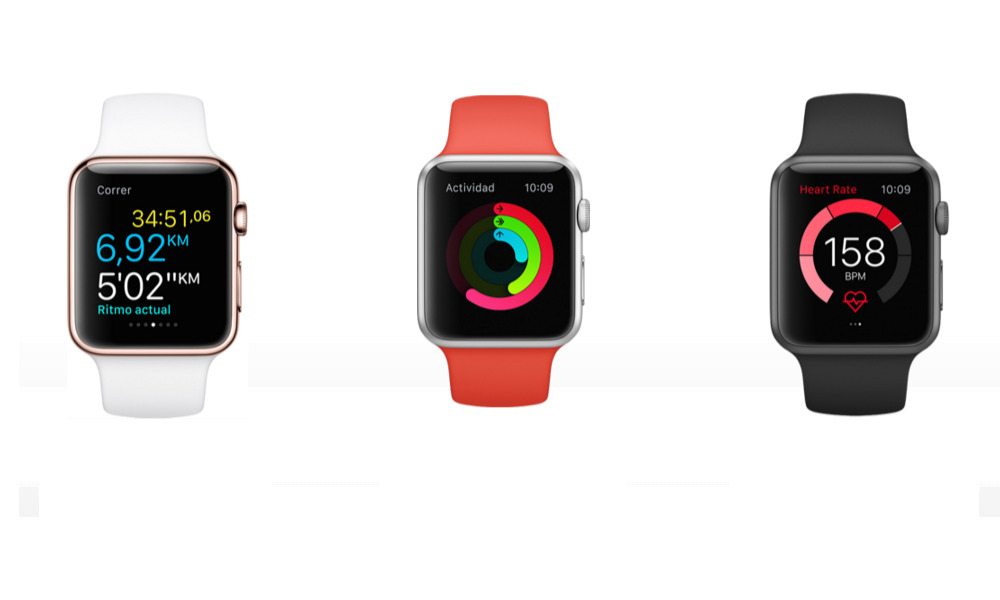Future Apple Watches Are Likely to Become Full-Fledged Medical Diagnostic Tools

Toggle Dark Mode
One of Steve Jobs’ original goals in guiding his company to create the Apple Watch, was that the wearable would one day become a fundamental tool for helping users take charge of, more effectively manage, and receive more accurate readings of their most vital health statistics, right from the comfort and convenience of their wrist.
And while the Apple Watch — and especially the Watch Series 2 — already delivers one of the most inherently powerful fitness and exercise tracking utilities on the market, Apple has already been displaying signs that the company has much bigger plans in store for the Apple Watch’s future.
According to a report originally published by Bloomberg, Apple’s purchase earlier this year of a little-known health technology startup known as Glimpse, Inc., will help to catapult the company’s efforts of further advancing the health monitoring and management abilities of the Apple Watch — primarily via the development and implementation of new, advanced apps, which will work in conjunction with Apple’s HealthKit and ResearchKit platforms.
Noting that he was employed by Glimpse up until Apple’s acquisition of the firm back in February 2016, Apple Health’s new Senior Engineer, Mohan Randhava, stated the following on his LinkedIn profile: “I will be working on building a platform, a set of application program interfaces, and a simple product that will bring what we believe will be a disruptive consumer health-care application to the U.S. for the first time.”
In other words, Randhava is referring to his new role in bringing to market a series of applications — possibly aided by a future generation wearable of some sort — that could, in effect, help identify and diagnose any health-related anomalies that the end user may be experiencing, but not know about.
For its part, Apple’s ambitions in the health field are no secret — unlike other, heavy R&D endeavors, such as ‘Project Titan’. Tim Cook, for instance, explained in an interview earlier this year that his company was extremely excited about the possibility of developing a health care diagnostic tool.
“Health is a huge issue around the world and we think it’s ripe for simplicity and a new view,” Cook stated during a conference in Amsterdam last February. “If you drive for a while and your car gets too hot, it says pull over. If you need an oil change, it says check your oil. What’s the equivalent for the body?”
As someone who’s personally afflicted by a myriad of health anomalies, I find Apple’s aspirations to create such a tool to be rather interesting. And, to that end, I’d certainly consider buying one, if and when it ultimately comes to fruition. However, I think worth noting is the difference that Apple will have to substantiate, and extra steps the company will have to take, in order to render the Apple Watch (or future generation wearable) an actual medical diagnostic tool — rather than simply a wearable used for the sake of issuing recommendations. The former embodiment, as you might imagine, would almost certainly require some form of FDA approval if it were to be advertised as such; and therefore, Apple would have to comply, and work in accordance, with a number of federal laws and regulations in order to mass-market such a product.
Though if there’s any company with the motivation, and not to mention, the disposable capital, to turn such a prospect into reality, it’s definitely Apple. And so, I must say, I’m quite excited about what the future holds as far as Cupertino’s health endeavors are pertinent.
Would you buy a medical diagnostic tool from Apple, if such a thing ever existed?
Let us know in the comments!
[The information provided in this article has NOT been confirmed by Apple and may be speculation. Provided details may not be factual. Take all rumors, tech or otherwise, with a grain of salt.]






